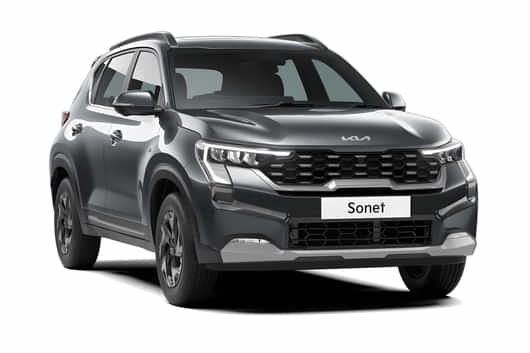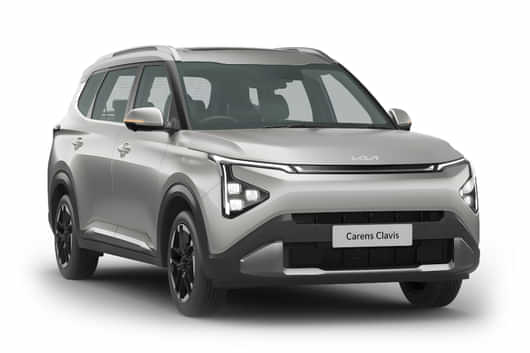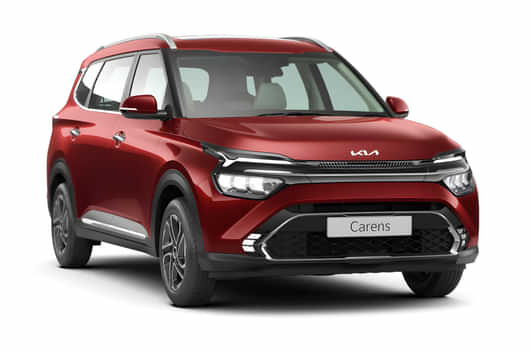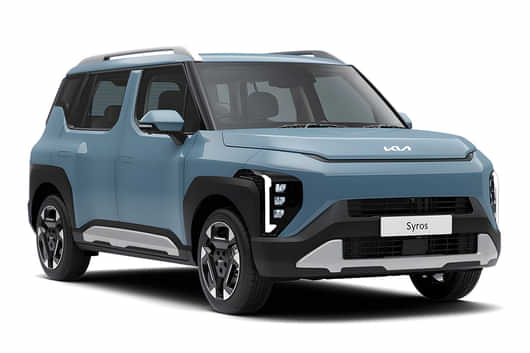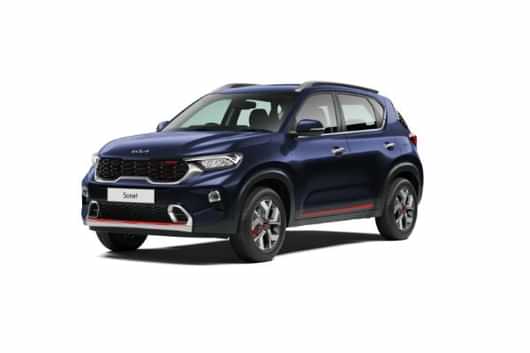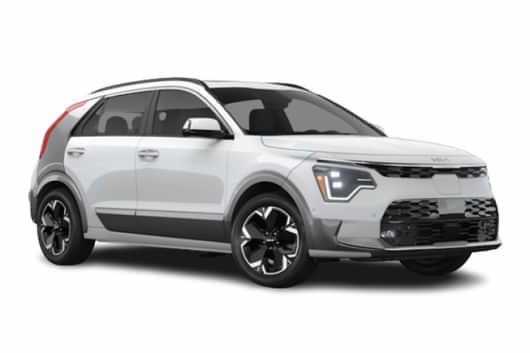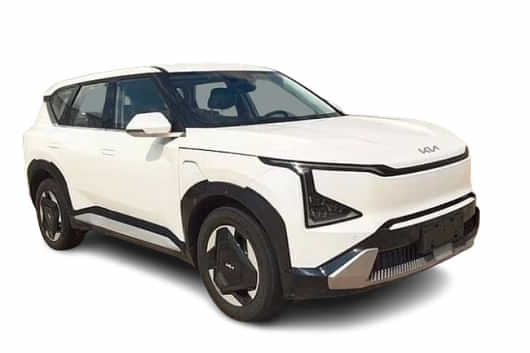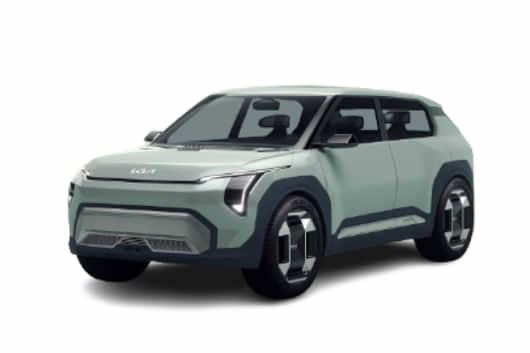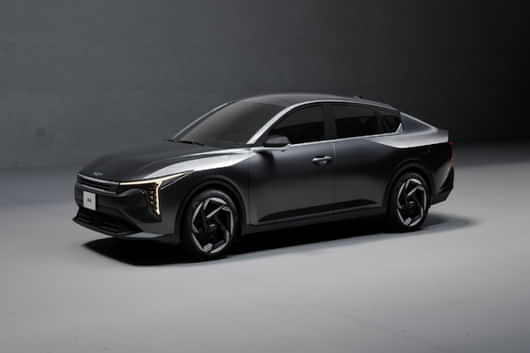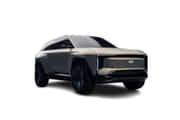
KEY HIGHLIGHTS
- Syros EV spotted charging in South Korea tests.
- Charging port on left front fender revealed.
- Retains ICE silhouette, same alloy wheels used.
- Expected 40 kWh battery, 400 km range.
- Launch targeted for 2026 in India market.
Kia is steadily expanding its electric vehicle footprint in India, and the latest model inching toward production is the electric iteration of the Syros. While the ICE Syros impressed many with its features and packaging, it hasn't managed to translate that into strong sales. Kia seems to be betting big on electrification to revive the nameplate's fortunes. And now, the upcoming Syros Electric has been caught on test once again - this time plugged in and charging. Before moving ahead, join our 91Wheels WhatsApp Community to stay versed on the latest automotive news.
Read more: Yamaha EC-06 Vs River Indie: Here are the Key Differences
A Clear Look at the Syros EV on Test

The newest spy shots, reportedly from South Korea, show the Syros Electric hooked up to a public charging station. The test mule is wrapped in heavy camouflage, but it can't fully hide some telltale details.
The EV retains the overall silhouette of the Syros ICE version, confirming that this model will be a derivative EV rather than a ground-up electric platform. The alloy wheels also appear to be the same as the petrol/diesel variant - likely placeholders, as production-spec EVs often adopt aero-optimized designs.
Despite the disguise, the signature shape of the B and C-pillars makes the vehicle instantly recognisable. The stance and proportions align closely with the outgoing model, hinting that Kia's focus will be more on powertrain electrification rather than design overhaul.
Charging Port Placement Revealed

One of the biggest reveals from this sighting is the location of the charging port. Unlike the Carens Clavis EV, which features a front-mounted, center-positioned charging port for easy access, the Syros Electric places its port on the left front fender.
While this position is still practical, it requires more mindful parking alignment at charging stations. It's possible Kia chose this location due to platform constraints from adapting the ICE Syros for EV duty.
What Features to Expect

The electric version is likely to arrive with some upgrades over the standard Syros. Expected additions include:
- fog lamps
- rain-sensing wipers
- cooled glovebox
- rear seat ventilation (backrest)
- improved feature list matching or surpassing rivals
The signature 30-inch Trinity display setup - combining dual 12.3-inch screens and a secondary 5-inch panel - is expected to continue. Advanced tech features such as Level-2 ADAS, a built-in dashcam, a 360-degree camera system, and a panoramic sunroof should also make their way into the EV.
Kia will likely position the Syros Electric as a better-equipped, more premium offering compared to its ICE counterpart.
Battery, Motor and Range Expectations

While official specifications remain under wraps, internal estimates and segment benchmarks point toward a:
- 40 kWh battery pack
- 400 km claimed range
- single-motor FWD setup
- disc brakes on all four wheels (similar to the ICE model)
If Kia adopts this configuration, the Syros EV would slot right into a sweet spot for urban and semi-urban buyers seeking an affordable, practical electric SUV.
Launch Timeline
A market launch is expected sometime in 2026, following a series of test cycles and validation checks in Korea and India. Given the rising EV adoption curve and Kia's growing EV portfolio, the Syros Electric could become a strategic model for the brand in the competitive sub-4m SUV segment.
Read more: Yamaha XSR155 Scrambler & Cafe Racer Customisation kits: Detailed Pricing
Verdict
The Syros EV seems poised to become the modern, tech-heavy alternative to the underperforming petrol counterpart. Its familiar design, boosted features, and practical range could help Kia reestablish the Syros nameplate - this time with electric energy driving it forward.












